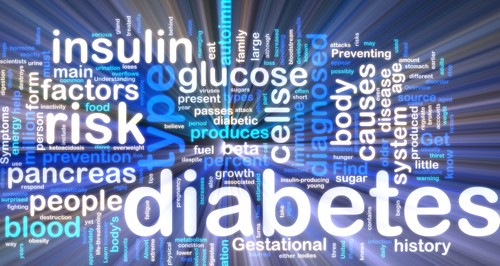Diabetes mellitus (MEL-ih-tus), or simply, diabetes, is a group of diseases characterized by high blood sugar levels that result from defects in the body’s ability to produce and/or use insulin. There are 3 types of diabetes, Type 1, Type 2, and gestational diabetes. Type 1 diabetes, previously known as juvenile diabetes, is diagnosed in children and young adults. In this type of diabetes, the body does not produce insulin.
Insulin is a hormone produced in the pancreas that regulates blood glucose levels. Insulin is necessary for the body to be able to use glucose for energy. When you eat food, the body breaks down all of the sugars and starches into glucose, which is the basic fuel for the cells in the body.
In Type 2 diabetes, the pancreas either does not produce enough insulin or the cells ignore the insulin. Type 2 diabetes is more prevalent in African Americans, Latinos, Native Americans and Asian Americans.
Gestational diabetes is diabetes that forms during pregnancy. This type of diabetes usually forms around the 28th week of pregnancy. Significantly, women who suffer from gestational diabetes did not necessarily suffer from diabetes before pregnancy. It also does not mean that the woman will suffer from diabetes after the pregnancy.
According to the American Diabetes Association, 23 million Americans, or about 7.8% of the total population in the United States suffer from diabetes. 1.6 million new cases of diabetes are diagnosed each year in the United States in adults over the age of 20. Each year diabetes contributes to approximately 250,000 deaths worldwide. It is the 7th leading cause of death in the United States with total medical costs of $174 billion a year.
Diabetes increases a person’s risk for many other serious health problems, including, eye complications, skin complications, foot complications and the healing process in general. It can also cause hypertension and significantly increase the risk for heart disease. It is important for health care providers to know when a patient is suffering from diabetes. It may alter or affect the treatment options for that patient. It may also require additional monitoring and treatment by the health care provider to keep the patient from suffering from diabetic complications during treatment of other medical problems.






